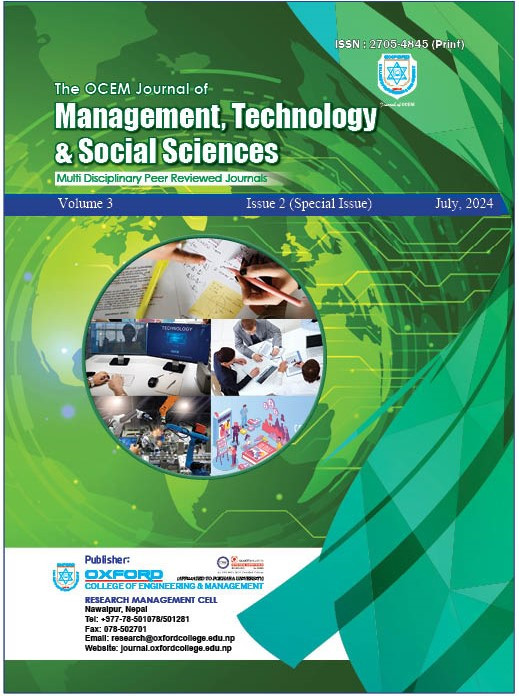
Student Satisfaction towards College Canteen Services in Chitwan and Nawalpur Districts of Nepal
Every student experiences hunger and seeks to satisfy it with clean, well-balanced foods. College canteens have been established primarily to meet this need, serving as essential gathering places where students can enjoy delicious and nutritious meals. This study employed a non-experimental descriptive correlational research design to investigate the correlation between student satisfaction and the quality of canteen services in the Chitwan and Nawalpur districts of Nepal. A total of 103 candidates responded to the questionnaires, which were distributed on a completely random basis. The data from these 103 samples were analyzed using statistical tools to measure canteen service quality across parameters such as assurance, empathy, reliability, responsiveness, and tangibility. Based on elements like facilities, features, ambiance, cleanliness, and cost, the satisfaction of students was evaluated. Multiple metrics were employed to enable a multi-dimensional assessment.
The study utilized relevant analytical tools like Pearson's correlation and regression analyses to enhance the reliability and precision of insights into the relationship between service quality and student satisfaction. The findings indicated that students regarded the level of service at the canteen as moderately satisfactory, with overall student satisfaction at a moderate level. A notable positive correlation was identified between the level of canteen services and student satisfaction, highlighting specific aspects such as tangibility and empathy that strongly influence this association. Therefore, it is suggested by the study that prioritizing the enhancement of service quality by college canteen managers should entail focusing on improving the tangibility and empathy aspects identified as significant indicators of student satisfaction.
Keywords: cleanness, correlation, quality of services, regression, students satisfaction.
